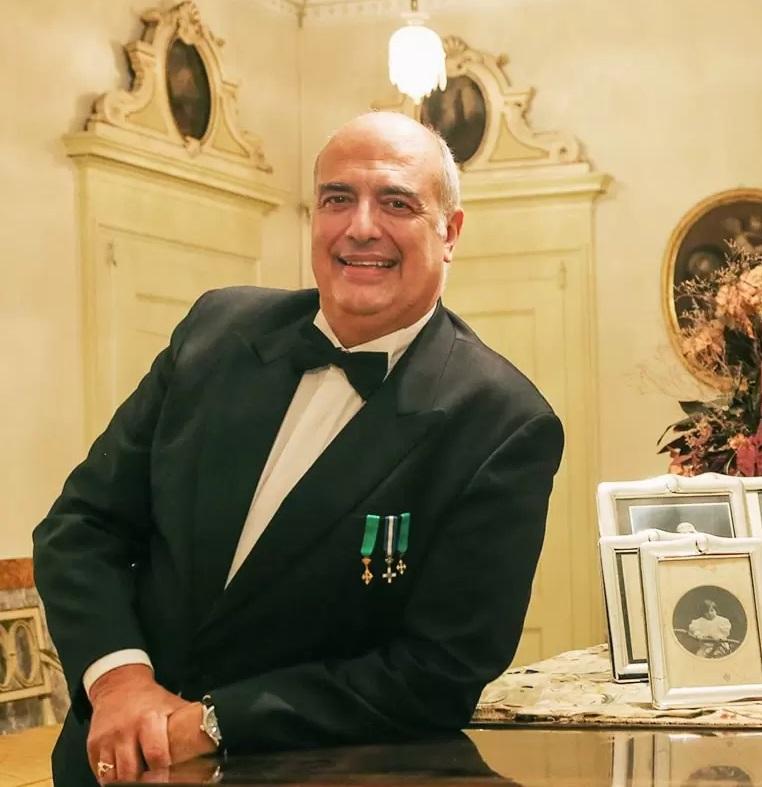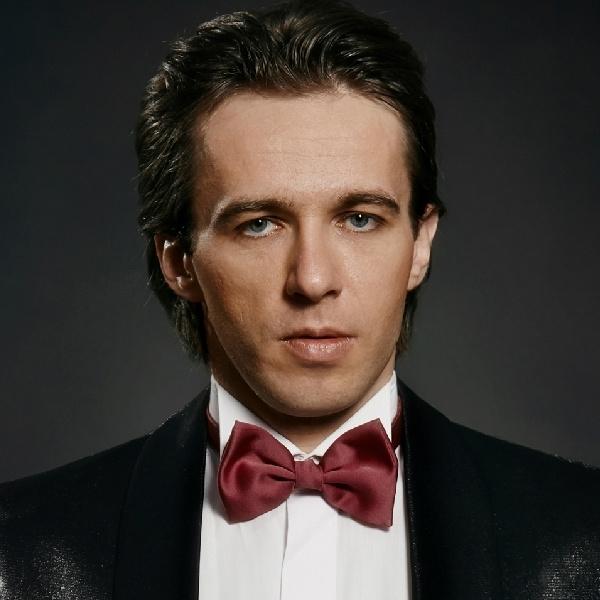On Sunday 12 October, the Ukrainian tenor Vitaliy Kovalchuk performed the role of Radames from Giuseppe Verdi's opera "Aida". The concert was held within the "Grande Opera in Villa" programme organised by the Count Alberto Uva at the historic Villa Sormani Marzorati Uva in Missaglia in Brianza, a region north of Milan.
It is important that in these difficult moments of the war we are going through we can establish an ideal bridge between Missaglia-Brianza-Italy and Ukraine.
Alberto Uva, owner of Villa Sormani Marzorati
This programme takes up an ancient tradition of aristocratic Lombard families, who invited guests to their country homes and offered them concerts and operas in a reduced format. After the music, a pastry shop in Missaglia offered sweets prepared according to the original recipes of the time of Giuseppe Verdi.

Our Editor-in-Chief Ugo Poletti interviewed the tenor Vitaliy Kovalchuk, 41 years old, coming from the city of Ternopil, in Northern Ukraine.
OJ: Tell us about your relationship with Italy:
I have been in Italy since 2005. I came to study at the Verdi Conservatory in Milan, where I graduated. In all this period I have never stopped my collaboration with my country. I often collaborate with the Lviv theater. I made Aida, Madama Butterfly, Rigoletto there. Before the war, the conductor of the Odessa Opera Theatre Igor Chernetsky had asked me to do Trovatore or Turandot. I accepted immediately because I don't want to break ties with my country. Then the war broke out and everything stopped. I still can't believe this happened in 2022. My parents are still there in Ternopil. I offered them to come here to Italy, but they said no. It is a great time of trouble for musicians in Ukraine. However, I see many artists and orchestras from Ukraine touring all over Europe. Despite the war, Europe has also opened its doors to our musicians. Those who were not known before now have the opportunity to perform here as well.
OJ: Tomorrow the war ends: what is your dream, your plans to achieve with peace?
I already have a project prepared with a friend: the first thing I want to do in Ukraine is the Verdi's “Requiem†for the peace. Because my dream is to bring Italian artists and conductors, who are very good, to Ukraine. We too have high-level musicians, but in the field of opera the connoisseurs are here. You can technically study opera in Ukraine, but to understand opera you must live in Italy, you must eat culatello in Parma, taste Parmiggiano Reggiano and drink Lambrusco wine. Since I was a child, my desire has been to study opera singing in Italy.
OJ: How did you live this experience of singing in a context that is not the usual theatre?
When Gabriele Bolletta (artistic director of “Opera in Villaâ€), with whom we have been friends for many years, asked me to come and sing in the Villa, I immediately said yes. It is about promoting culture even in small villages. Music must be alive not only in major theatres. The work is underrated at the moment. It is no longer like in the seventies, the golden age of opera, when people sang even in the provinces, where it happened to hear better voices than those in the cities. Therefore these things, like singing in the provinces, must be done, because this is the Italian heritage.

Notes on Aida.
Initially commissioned to Verdi for the inauguration of the Suez Canal in 1860. Verdi manages to finish the work and stage it in the Opera House Theater in Cairo in 1871. It will become one of the greatest successes of Verdi's repertoire from its performance at the Teatro alla Milan staircase.
The other performers, in addition to Vitaliy Kovalchuk, were: Sarah Tisba (Aida), Serena Pulpito (Amneris), Giorgio Valerio (King of Ethiopia and costume provider), Gabriele Bolletta (the Pharaoh and artistic director of the project). Japanese pianist Yuka Gohda accompanied played the Aida reduction.
On the site:
Villa Sormani Marzorati Uva is a seventeenth-century building located in Missaglia, a small town in the Brianza region between Milan and Switzerland.
“La Grande Opera in Villa†is one of the most important events of the “Art & Culture Villa Sormani†programme. In recent months, reductions of the following operas have been staged: Traviata, Rigoletto, Cavalleria Rusticana, Barbiere di Siviglia, Boheme, Madama Butterfly, Carmen, Tosca.





















